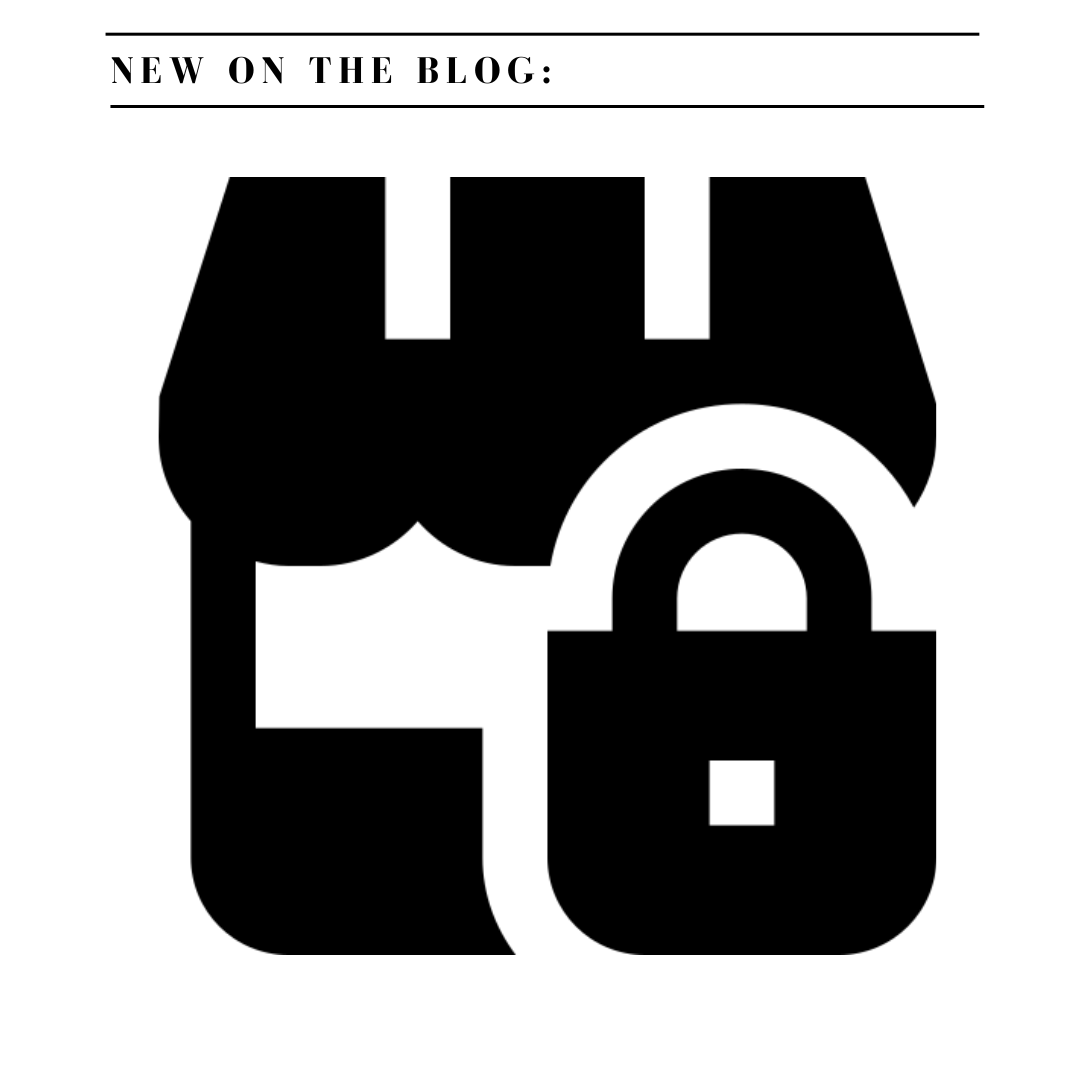 Add My Company
Add My Company
Top Tips to Secure Your Retail Store.
02-09-2022

The deepening impact of the cost-of-living crisis is particularly acute in retail, where crime rates are surging.
Shop workers are facing daily challenges as many retailers report increases in abusive, anti-social behaviour toward staff. In this post, we look at this escalating issue and consider some practical security precautions retailers are adopting.
Concerns from the UK retail industry are mounting as many report notable increases in shoplifting and abusive behaviour toward staff. The 2021 Association of Convenience Stores (ACS) Crime Report tells us how 89% of those who work in local convenience stores have experienced some form of abuse, and over 1.2 million incidents were recorded over the preceding 12 months.
An overall year-on-year increase in shoplifting incidents of 20% is recorded in ONS statistics, up to March 2022, based on just 270,000 recorded crimes so far this year. But retailers dispute these statistics, highlighting how they face millions of shoplifting crimes every year. Importantly, shoplifting is recognized as the most significant trigger of abuse or violence toward shop workers.
The trade union for retail workers reports as many as 9 in 10 shop workers have suffered abuse from customers, and over 1300 incidents occur every day. It's reported that 44% of frontline shop staff have faced hostility from customers over the past 6 months, and this figure has escalated from 35% recorded in February 2022.
**Why Retail Crime is Increasing**
Ex-Merseyside police chief Andy Cooke, in his new role as chief inspector of constabulary, has stated: “The impact of poverty, and the impact of lack of opportunity for people, does lead to an increase in crime. There’s no two ways about that.” UK economic forecasters have warned that millions will fall into food and fuel poverty as inflation escalates.
But police officers have been encouraged by the chief inspector of constabulary to use their “discretion” when deciding whether to prosecute people who steal to eat. But this approach has been criticized by retailers who point out that if prosecution rates for shoplifting crimes remain low (6%) and reduce further, as is predicted, the lack of law enforcement effectively legalizes these impactful crimes.
The UK retail industry recognizes how tough economic times bring greater risks for consumers and retailers. They note how the trending rise in shoplifting has been sparked by the widely reported cost-of-living crisis and they anticipate that, as people become increasingly desperate, more will resort to shoplifting.
And since dealing with shoplifting is the primary reason shop workers face abuse and sometimes violence, it's inevitable many will experience anti-social behaviour from those they challenge. The fact that people are now resorting to shoplifting to meet their routine needs is reflected in reports from retailers highlighting an apparent increase in first-time shoplifters, rather than the ‘usual suspects’ in their regions.
Shops state that people are now stealing everyday items in contrast to the luxury items more regularly targeted by experienced shoplifters. A recent example describes a pensioner who was stopped from stealing shampoo and washing powder.
Tesco chairman John Allan said the UK was facing: “real food poverty for the first time in a generation.” He pointed out how people were finding it hard to mitigate soaring energy costs, and Tesco customer surveys show that inflation is the greatest cause of concern for most customers. He described how, for the first time in many years, customers were telling checkout staff to: ‘stop when you get to £40’, or whatever amount they can afford.
**Employee Theft**
Another challenge faced by retailers is theft committed by shop staff. It’s estimated that around 19 incidents of staff theft are reported every day in the UK with year-on-year figures declining in 2020 and 2021. COVID lockdowns, working from home, and other pandemic-related measures helped reduce the overall numbers of thefts by staff over those years.
But some suggest the cost-of-living crisis is likely to drive an increase as shop workers struggle to make ends meet with their existing salaries.
**What Retailers are Doing**
Shoplifting isn’t a victimless crime and, as noted, will sometimes escalate into abuse and violence toward shop workers. Shop staff sometimes find themselves facing persistent, challenging shoplifting criminals and these confrontations can result in violence or the threat of violence. Experiences like these are a recognized cause of anxiety, fear, and significant mental health issues for shop staff.
Over 100 retail leaders in the UK have written a joint letter to police and crime commissioners calling on them to make retail crime a priority in local policing strategies. They have raised concerns about escalating levels of violence and anti-social behaviour experienced by staff and the emotional impact this has on victims.
Their communication points out the massive investment in crime prevention made by retailers in their attempts to minimize risks, estimated to be around £715 million in 2020/2021. Earlier in 2022, after an extensive campaign, the UK Government introduced an amendment to their Police, Crime, Sentencing and Courts Act to establish tougher sentencing for assaults committed against those “providing a public service or performing a public duty.” But it's been noted this will only have an impact if police successfully investigate and prosecute crime incidents. This is why retailers are asking for retail crime to be prioritized.
Crime prevention and security enhancements implemented by retailers have included equipping staff with body cameras. The Coop has been using this valuable tactic for some time and both Sainsburys and Tesco are now using this technique. Tesco reports how this tactic has resulted in a 12% reduction in physical assaults on shop staff. The body cameras are normally turned off and only turned on if a situation is escalating. Staff are required to announce they are turning on their cameras and this is often enough to de-escalate the situation.
Some retailers are providing staff with de-escalation training and the British Retail Consortium has created a useful, freely available animation, along with a leaflet, to help retailers boost the situation management skills of their staff.
The installation of CCTV, or the expansion of existing CCTV, is another technological tactic that’s proving to be effective in many stores. Some have even resorted to using customer control systems, developed during the pandemic, involving physical security gates at all checkouts and one-way entry and exit systems.
As previously noted, people are reported to be stealing basic products rather than the luxury items normally targeted by shoplifters. Food poverty means items such as cheese, baby milk, and meat are commonly targeted by people in need. This has prompted retailers to attach security tags to blocks of cheese, tubs of baby milk, and legs of lamb as well as many other food and grocery items.
**Top Tips to Keep Your Retail Store Safe and Secure**
We’ve briefly touched on the initiatives and tactics some retailers are putting in place to reduce crime incidents in their stores and protect their staff. Here are some practical tips and recommendations that will boost security.
**Think Carefully About Self Checkout**
Self-service checkout systems, now a common feature in supermarkets, are a form of retail technology specifically designed to eliminate jobs and save money. But research shows how theft from stores with self-checkout systems has escalated by a massive 52%. Since these systems are fundamentally based on honesty, it shouldn’t be surprising they are being exploited by people who skip scanning some items or switch barcode stickers from high-value items with stickers taken from lower-priced products.
**Increase Use of CCTV**
Security concerns are prompting many stores to either install CCTV or expand the number of cameras and screens in their existing systems. Hi
For more information on Top Tips to Secure Your Retail Store talk to Insight Security

